Ask Ethan: Can dark energy lead to a repetition of the life cycle of the universe?
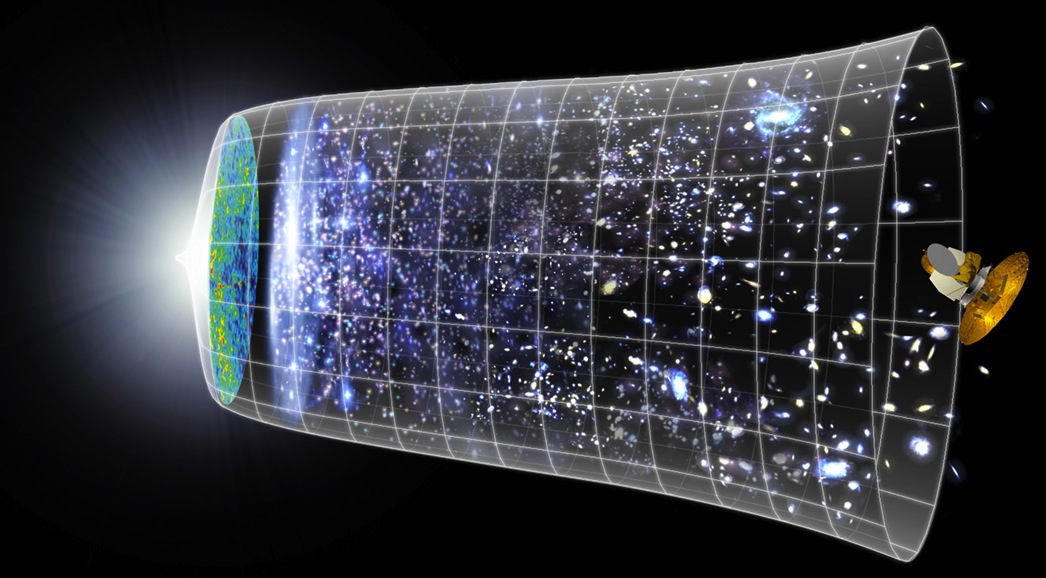
There is some supernatural resemblance to the beginning of our Universe - the period of cosmic inflation, and determining the ultimate fate of the Universe by the accelerated expansion of dark matter. Inevitably, you begin to ponder whether they are not related to each other. This week I chose a question from a reader, Andrew Gillette, who asked:
If eternal inflation is true, can dark energy be a precursor to a return to this original state?
This is not only possible, dark energy does not depend at all on the correctness of the theory of perpetual inflation. Let's start with the stage that preceded the beginning of the Universe and prepared its offensive: with cosmic inflation.
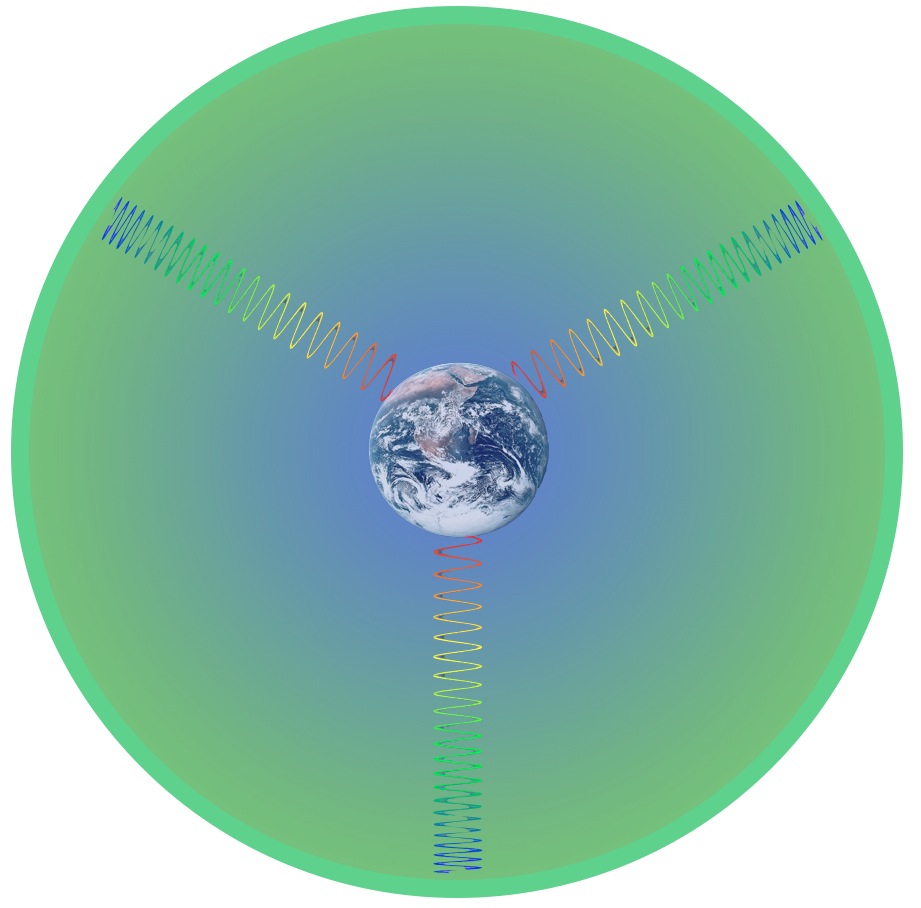
The temperature of the universe is the same everywhere, even in causally independent parts of the sky.
When the familiar Universe — filled with matter and radiation — began to exist, some of its initial properties were rather strange, and in principle, they did not have to be just like that. It was spatially flat, it had the same temperature everywhere, it did not have ultra-high energy relics, and it had a very specific pattern of regions of high and low density. It is possible that the Universe was born with just such properties, but the idea of cosmic inflation is that if the Universe began with a period of exponential expansion, during which space had internal energy, and then this period ended, then it would have been a Big Bang with just such properties. . It took many years to correctly calculate all the consequences of this idea, and even more time to get its confirmation from the data on the background radiation fluctuations. But now, cosmic inflation is the very first process, the evidence of which we have.
')
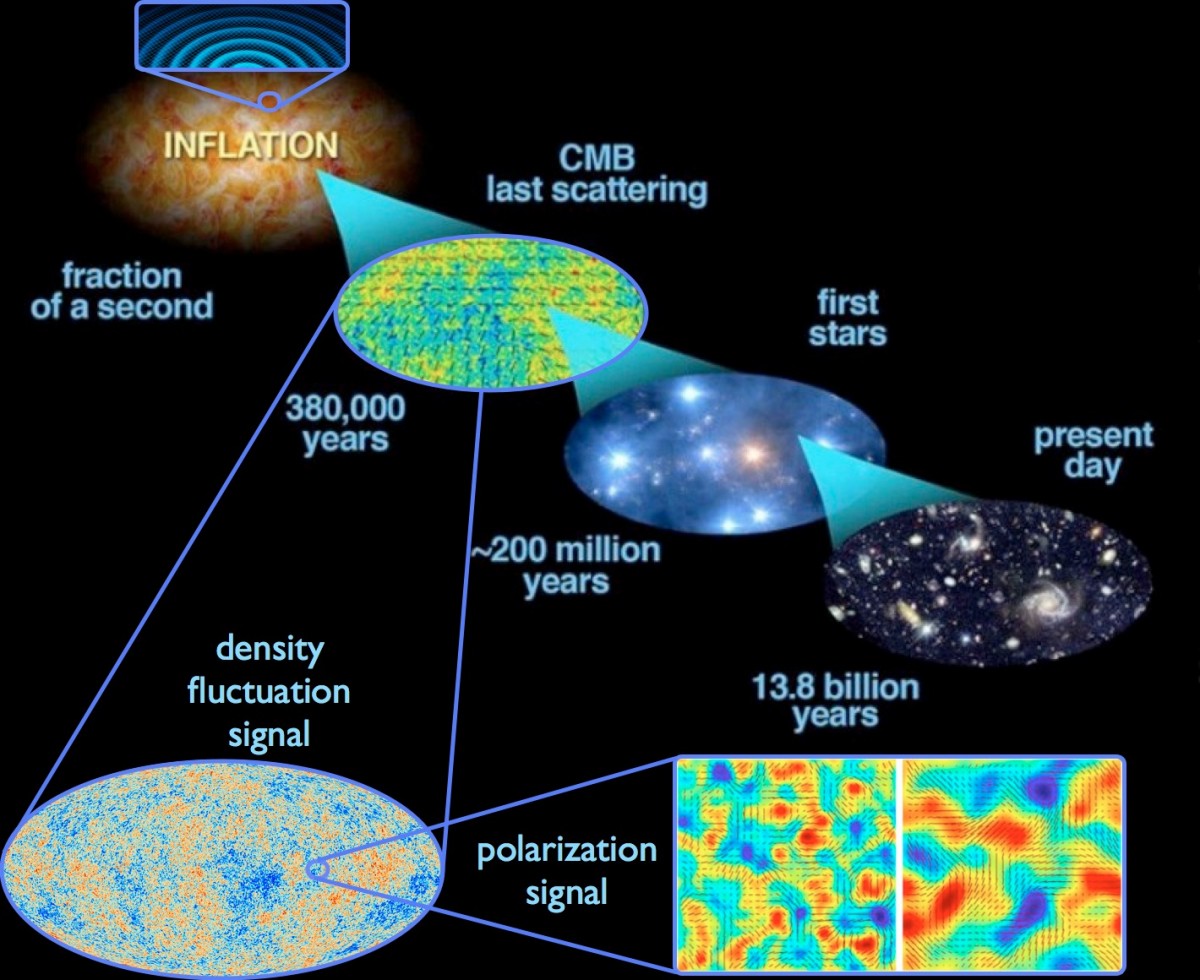
Perpetual inflation is an idea akin to inflation, based on a property that you probably rarely thought about. Usually, any natural transient process - for example, a kettle with hot water, changing from a liquid to a gaseous state - occurs in several places at once, and these places expand and then merge together. In the case of boiling water, we call this “percolation,” the appearance of small bubbles below, merging along the way up, and by the time the surface reaches it becomes large. But there is a problem with inflation: those regions in which inflation has not ended, continue to expand exponentially, which makes it difficult for the regions where it has ended to “percolate”. Accordingly, our surveyed Universe should have appeared inside a whole bubble in which inflation ended, and not from several bubbles merged with each other.
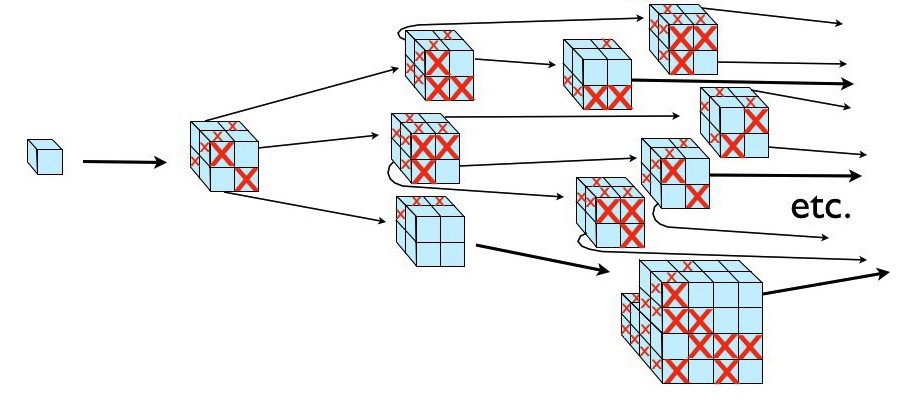
But at the opposite end of the spectrum there is the fact of accelerating the expansion of the Universe. The best explanation for it, corresponding to the measured reality with the highest accuracy available to us, is that small energy is inherent in space itself: we call it dark energy. This energy is omnipresent, it is equally present in all places, and it is extremely small: if you convert it into mass through Einstein E = mc 2 , you get the equivalent of one proton per cubic meter. But the space is not only huge, it is also expanding! So, over time, this dark energy becomes more and more important, and as a result, after 8 billion years, it led to the acceleration of the expansion of the Universe, and later became the dominant energy.
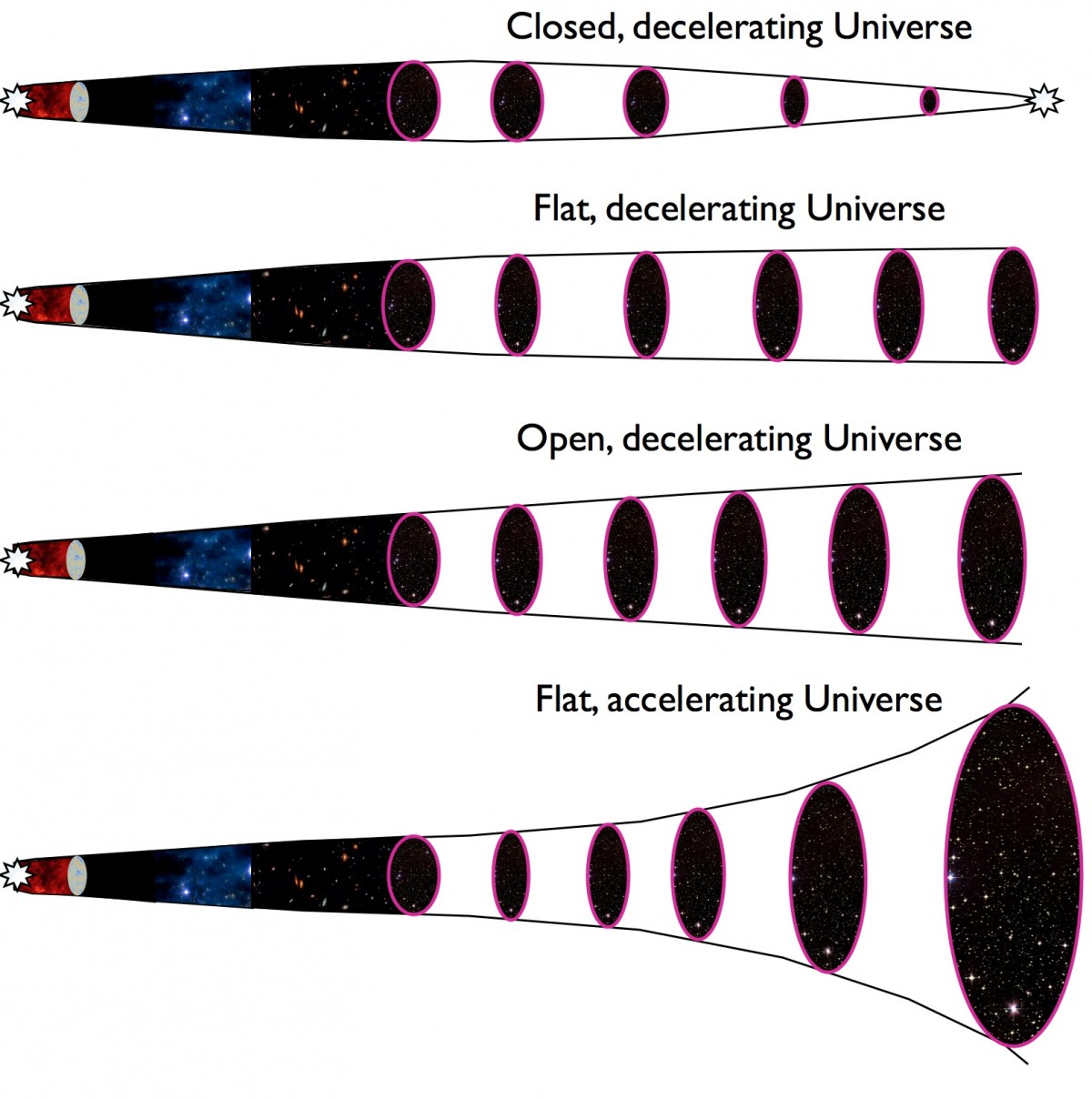
These two periods may seem different: inflation and accelerated expansion some time after the start. Indeed, the order of energies differs approximately 10 120 times, that is, extremely! But both of them deal with the energy inherent in space itself, both of them make the fabric of space exponentially expand, and with time, from fractions of a second in the case of inflation, to trillions of years in the case of dark energy — they will blow apart everything that is not connected. in the whole structure. There are a great many models trying to combine these processes, known as quintessence.
So what are the possibilities of the universe to repeat the cycle of its existence? So far, there are two good candidates.
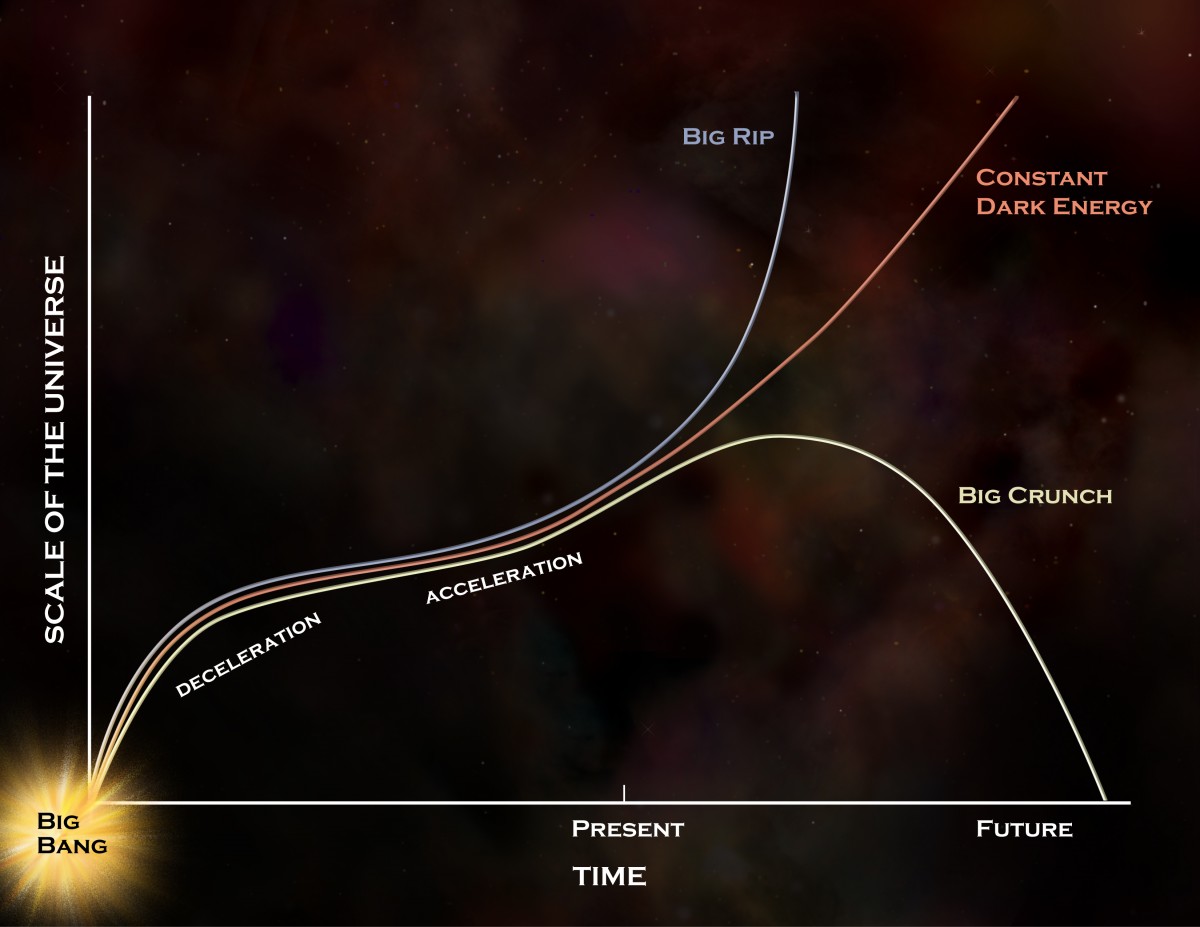
1) If dark energy is a cosmological constant, it may turn out to be residual energy from the inflation period from which it all began. In this case, there is no reason why, after a lapse of time, it cannot disintegrate to an even lower energy state. Perhaps this will generate a huge number of particles of extremely small mass, such as neutrinos, axions, or something even more exotic, which can probably unite together, form their analogs of stars, planets or even people on a sufficiently large time scale. Just because it is inaccessible to us does not mean that it is impossible, and this is one of the probable fates of the Universe on a large scale of time, even if its occurrence will take Googol years.
2) Dark energy may not be a cosmological constant, but may increase its power over time. In this case, it will continue to grow, which will lead to a “big gap” scenario in which every connected structure of the Universe will eventually be broken. But according to the scenario of Eric Gawiser , it is possible that at the very last moment — when space itself is already ready to burst — this inherent energy, indistinguishable from inflation, will make the transition to a hot Big Bang! The “restored” Universe scenario can be a reality not only for our distant future, but also for our past - because of it the Universe can be much older than it looks, and maybe even infinitely old!
So far, the best evidence available to us indicates that dark energy is a cosmological constant, i.e. Scenario 2 is not working. If there is no lower energy state, then the 1st scenario is excluded - but so far we have not enough information to exclude any of them. If I had to choose, I would say that a transition to a lower level of energy is more likely, but the data we have better support the idea of dark energy as a real cosmological constant. But until this is definitely confirmed, it is necessary to be ready for any opportunities!
The EUCLID , WFIRST and LSST missions will help us measure dark energy with even greater accuracy, which should provide arguments for or against the two possibilities mentioned, and the groundwork in high-energy theoretical physics can tell us more about the first opportunity. In any case, the answer to Andrew's question is that dark energy can herald the return of a hot Big Bang after a state resembling inflation, but this does not depend on the eternal nature of inflation itself!
Source: https://habr.com/ru/post/402231/
All Articles